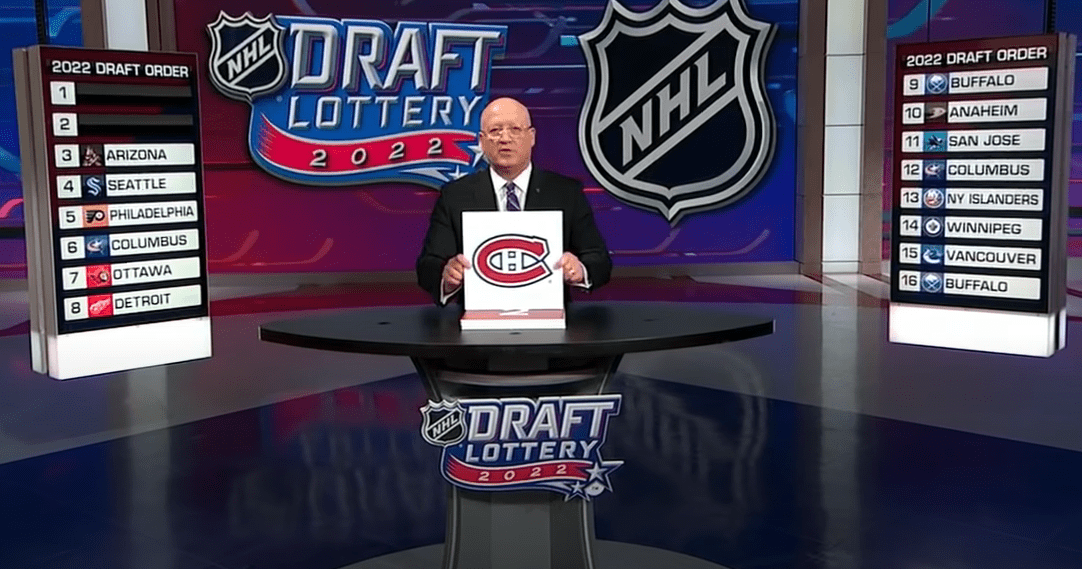Montreal Canadiens
Why Canadiens Wanted To Wait Before Putting Price On LTIR

Montreal Canadiens general manager Kent Hughes was reluctant to put Carey Price on LTIR before the start of the season, and here’s why.
The Canadiens were said to be looking for alternative ways to make room under the off-season salary cap prior to officially announcing the Kirby Dach signing. After the acquisition of Monahan a few weeks ago, the Canadiens did not have enough off-season cap space to be able to incorporate the four-year, $3.36M contract that they and Dach’s camp had come to terms on. In order to make room, the Montreal Canadiens had two options: Place Carey Price on Long-Term Injury Reserve (LTIR) or trade out some salary. Unfortunately for Hughes, time was of the essence and he didn’t want any distractions around Dach going into camp, so he decided to bite the bullet and reluctantly put Price on LTIR.
“We were limited based on cap. That’s why, once we had a sense as to where we were going with Kirby Dach, we decided to table it this. We’re going to revisit it; we’re comfortable, but, if we had done another deal, maybe we didn’t go in off-season LTI and then that would have given us more flexibility during the season,” said Hughes on why he delayed the announcement of Dach’s signing. “We just got to the point where we needed to conclude Kirby’s deal. Getting him here was more important at that pointè that he be around and not do it during training camp and have any kind of noise that comes with being at camp without a contract.”
When asked to explain why the use of off-season LTIR delayed the announcement of Dach’s deal and sought a trade instead, Kent Hughes went into a little more detail, explaining the difference between the use of off-season LTIR and regular LTIR use during the season.
“If we could have waited until the start of the NHL season, it would have given us more flexibility during the season,” said Kent Hughes regarding the timing of the use of LTIR impacting his decision. “We could have used Sean Monahan‘s contract against Carey Price’s and we would have kept the difference. The moment you put Price’s contract on off-season LTI, you lose that option.”
Because the Montreal Canadiens needed to put Price’s contract on LTIR now to be cap compliant during the offseason, the Canadiens don’t get the same benefit they would have gained if they placed Price on LTIR at the start of the season. To put a player on LTIR, a club needs to prove the player would need to miss ten games and 24 days of the NHL season. When Hughes spoke of Monahan’s health, he was unsure whether Monahan would be healthy to start the season and even told him there was no need to rush his return. That seems to now line up with what their LTIR plan initially was.
The Canadiens were hoping to make a deal to clear enough space that would have allowed them to only need to put Sean Monahan’s contract on LTIR to start the season, as the Canadiens don’t believe he’ll be ready to start the season. Putting Monahan’s $6.375M contract on LTIR the day before the season would have allowed the Canadiens to start the season cap compliant with Price’s contract still on the books. They could have then have placed Price’s contract on LTIR, once Monahan was ready to go, to maximize their relief pool.
For this strategy to work, the Montreal Canadiens would have had to put Price’s contract on LTIR before activating Monahan, as it would have allowed them to increase their relief pool and gain more flexibility. By playing it this way, the Canadiens would have been able to extend their LTIR relief pool from $6.375M (Monahan’s contract) to $10.5M (Price’s contract), thereby having $4.125M in LTIR relief space once the switch was done. That strategy would have given the Canadiens much more flexibility than they currently have. With Price already on off-season LTIR and Monahan likely to return in late October/Early November, the Canadiens will have an LTIR pool of around $1.85M going into the season (if nothing changes); meaning they potentially lost out on $2.275M in possible LTIR money, for now.
However, not to fear, that cap space can easily be compensated for by way of trade; something Hughes has mentioned he is actively exploring leading up to the season.









